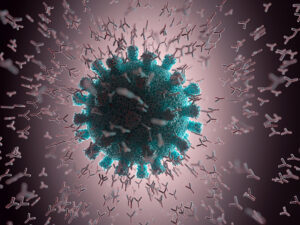The use of COVID-19 convalescent plasma (CCP) has been highly controversial since the beginning of the pandemic. With the Food and Drug Administration’s approval and establishment of the Expanded Access Program, over 100,000 units of CCP were distributed to U.S. hospitals every month during the winter of 2020-2021 despite limited data on its efficacy. Currently, 33 randomized clinical trials have been published evaluating the therapeutic role of CCP. Accordingly, a committee commissioned by the Association for the Advancement of Blood and Biotherapies (AABB) performed a formal systematic review and meta-analysis to formulate clinical practice guidelines for CCP using the Grading of Recommendation Assessment, Development and Evaluation (GRADE) methodology. The guidelines suggest using CCP with a high-titer of neutralizing antibodies in three groups of patients: outpatients who are at high-risk of disease progression, inpatients who are immunosuppressed, and hospitalized inpatients who do not have SARS-CoV-2 antibodies. CCP is not recommend for any other patient groups with COVID-19 nor as a prophylaxis for uninfected individuals. Unlike monoclonal antibodies, CCP’s antibody specificities change as donors are exposed to new variants. CCP is effective against the Omicron variant while the majority of monoclonal antibodies are ineffective. Thus, the new recommendations provide guidance for those who would benefit most from CCP.
Reference:
Show Comments
Comments on this article are closed.

